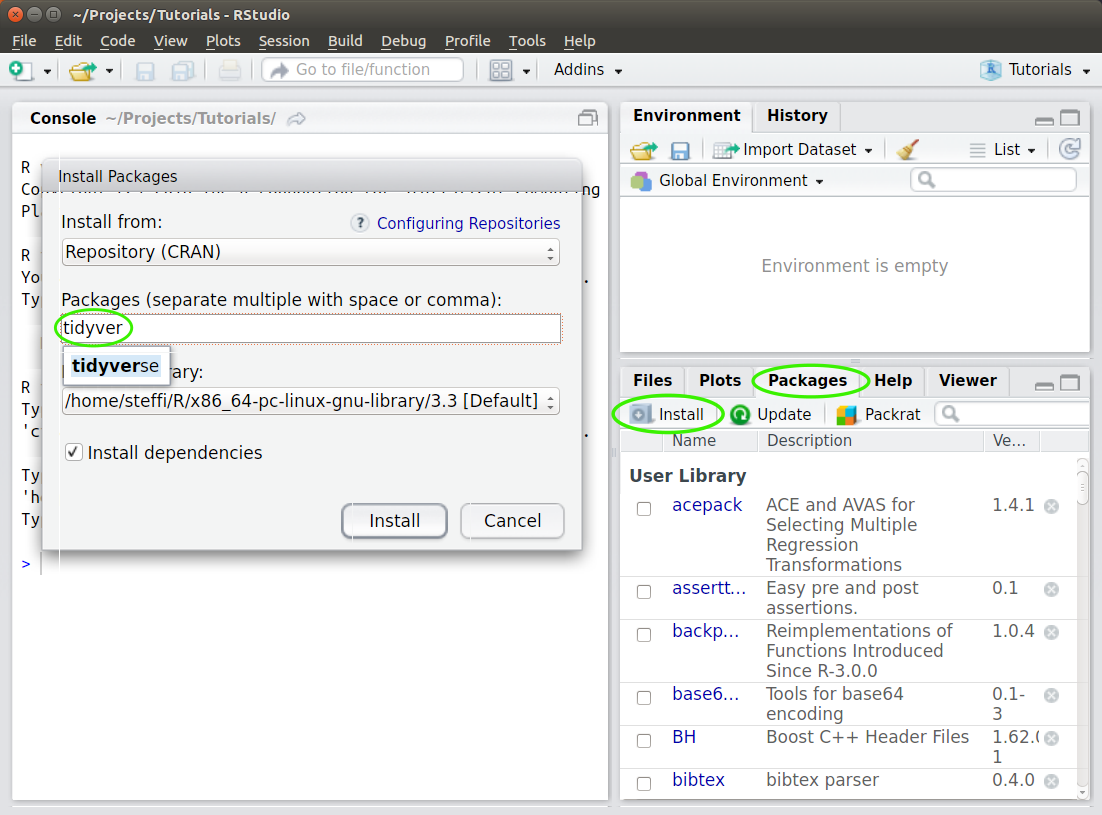Bird Cave - Intro to R Through Figures
Welcome!
I’m excited for the opportunity to share my love of R with you through this workshop. This site should give you all the details you need to get you ready to participate.
Date: Wednesday Jan 19th 2021
Time: 4:00 - 8:30 pm (Pacific)
Where: Zoom (See Ken’s email)
We are going to be covering a lot in this workshop, so to give us a jump start, I’ve compiled some things you should have done before hand:
IMPORTANT!:
If you have any problems installing the software or packages, please contact me before hand so we can sort out any problems
Instructions
1. Install R (Update R)
Even if you already have R installed, please update it, so we’re all working with the same version
Depending on your operating system, you can install R in one of the following ways:
Windows
- Go to the Windows download page: https://cran.r-project.org/bin/windows/base/
- Download and install R for windows (the link at the top)
Mac
- Go to the Mac OS X download page: https://cran.r-project.org/bin/macosx/
- Download and install the version that matches your Mac OS X
Linux: Debian/Ubuntu
- Specific details: https://cran.r-project.org/bin/linux/ubuntu/README.html
- Add one of the CRAN repositories to you apt (otherwise your R will be out of date)
2. Install RStudio
Even if you already have RStudio installed, please update it, so we’re all working with the same version
- For all Operating systems (i.e., Windows, Mac Os, Linux, etc.) go to RStudio’s download page: https://www.rstudio.com/products/rstudio/download/#download
- Download and install the installer that matches your system (i.e. select your link from the top options, not the Zip/Tarball options)
Open RStudio  not R
not R  . RStudio automatically opens R for you in the ‘Console’ pane
. RStudio automatically opens R for you in the ‘Console’ pane
Verify that your version of R by looking at the first line of the console (left or lower left pane), you should see something like this:
R version 4.0.3 (2020-10-10) -- "Bunny-Wunnies Freak Out"
Copyright (C) 2020 The R Foundation for Statistical Computing
Platform: x86_64-pc-linux-gnu (64-bit)
R is free software and comes with ABSOLUTELY NO WARRANTY.
You are welcome to redistribute it under certain conditions.
Type 'license()' or 'licence()' for distribution details.
Natural language support but running in an English locale
R is a collaborative project with many contributors.
Type 'contributors()' for more information and
'citation()' on how to cite R or R packages in publications.
Type 'demo()' for some demos, 'help()' for on-line help, or
'help.start()' for an HTML browser interface to help.
Type 'q()' to quit R.The important line is the first one: R version 4.0.3 (2020-10-10) -- "Bunny-Wunnies Freak Out"
3. Install packages
Packages are extensions or add-ons for R. You will use many different ones over the course of your work with R.
You are going to install the ggplot2, patchwork, and palmerpenguins packages
With code:
Type in the following and hit enter
install.packages(c("ggplot2", "patchwork", "palmerpenguins"))OR
With Menus:
- Click on the ‘Packages’ tab in the lower right hand corner
- Click on the ‘Install’ button right below the tab
- Type ‘ggplot2’ into the ‘Packages’ box, and click on ‘Install’ (repeat for the other packages)

- This may take a while (you will see lots of download text in red in your console)
- When it’s finished, you should see a message similar this one to in the console (lower left hand pane)
* DONE (ggplot2)
The downloaded source packages are in
‘/tmp/RtmpACWq9S/downloaded_packages’
> - Test that your installation had no problems by typing
library(ggplot2)into the console and hitting enter. You should just get a prompt (“>”) with no messages.
> library(ggplot2)
> Problems?
- If you already had R/RStudio installed, try removing them both and installing everything from scratch
- If you get an error about a problem installing a specific package, try installing that package invidiually (search for it in the install packages menu)
- Contact Steffi
Congratulations! Now you’re ready to get into the fun stuff :)
Updated 2021-01-20 20:55:23 CST